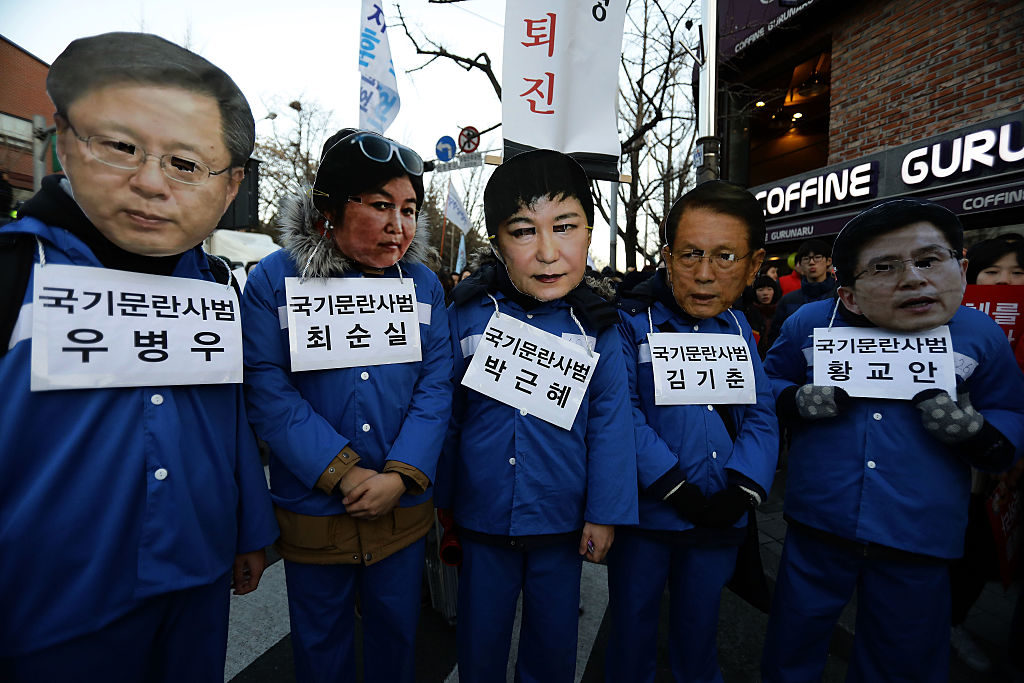Politics
Investigators Question South Korean Officials About Alleged Artist Blacklist
Artists have accused the scandal-engulfed administration of blacklisting 9,000 cultural figures.

Artists have accused the scandal-engulfed administration of blacklisting 9,000 cultural figures.

In the midst of the impeachment trial of South Korean president Park Guen-Hye, and following a complaint from a group of artists, a prosecution team has begun questioning officials about a supposed blacklist of 9,000 artists who had been deemed unfriendly to the administration.
South Korean investigators summoned Kim Sang-Ryul, former senior secretary for education and culture, on Wednesday, after raiding the homes and offices of officials close to Park this week, the Financial Times reports. On Thursday, according to the Associated Press, they also summoned Mo Chul-min, the South Korean ambassador to France.
Culture minister Cho Yoon-sun and former presidential chief of staff Kim Ki-choon have been accused of writing the blacklist, although they both deny having done so. Artists rumored to be on the list include painters, poets, actors, film directors, and musicians, who accuse the government of denying them financial support and from using state-owned venues, without valid reason.
“This tramples on the self-esteem of artists and annihilates the creative desire of those who are dedicated to nurturing the culture and arts industry,” the association of 144 artist groups that filed the complaint wrote in a statement.
Artists and journalists in South Korea have been censored in the past years, including the censorship of a painting satirizing the president that was due to be included in the 2014 Gwangju Biennale. That scandal caused Lee Yong-Woo, the biennale’s president, to resign.
Park, the country’s first female president, took office in 2012. The daughter of former president Park Chung-he, who served from 1961 to 1979, she stepped up as South Korea’s first lady at the age of 22, after her mother was murdered in 1974, until her father was assassinated five years later.
On December 9, 2017, the national assembly voted 234 to 56 to impeach Park, the Guardian reported. Her impeachment or resignation was called for by the public, outraged at a corruption scandal centered on Choi Soon-sil, the president’s longtime friend and confidante. The BBC reported in a November profile on Park that she had apologized for giving Choi “inappropriate access to government decision-making.”
Now, stripped of her executive powers, Park awaits final ruling by nine judges in South Korea’s constitutional court.
Park was previously the chairwoman of the conservative Grand National Party. Her administration’s goals as president included achieving a “cultural renaissance,” in part by, according to the website of the Korean Culture and Information Service, “encouraging cultural diversity and extending cultural exchange and cooperation,” and “promoting humanities and moral culture studies.”